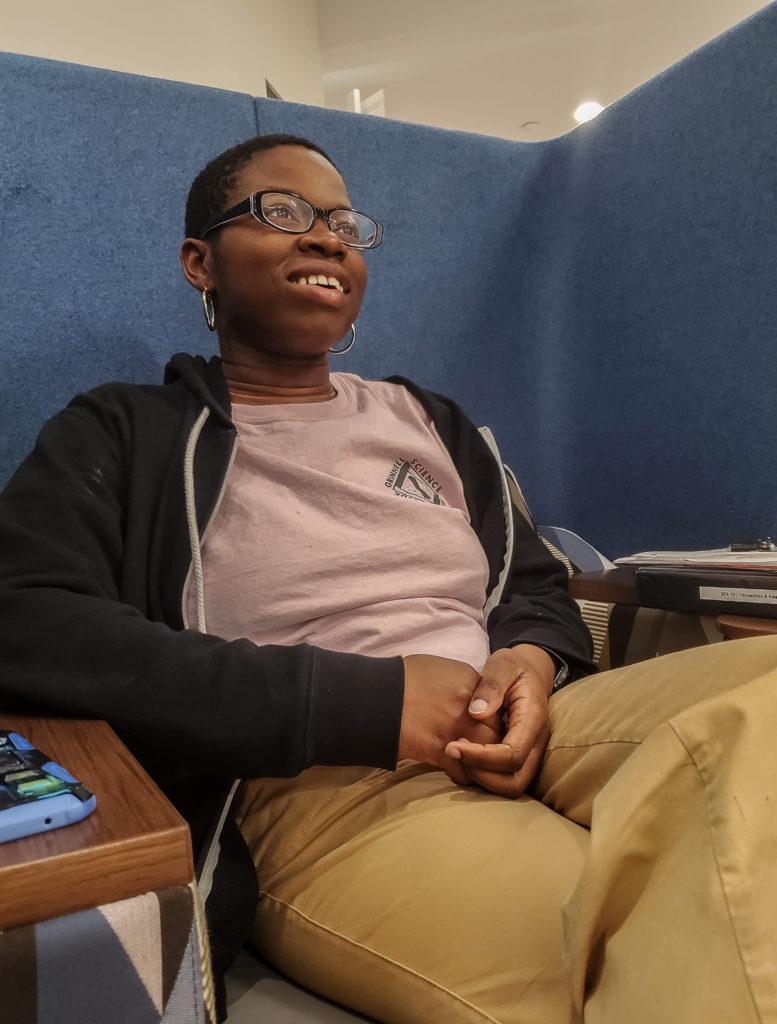
Within Concrete Perspectives—a student-run publication that collects poetry, literature and stories from incarcerated men and women at the Newton Correctional Facility—a multitude of words come to life.
In a poem titled “So, You Think So,” Rodney W. Winter wrote, “I wake,/Wondering./What’s the worst thing?/The not knowing … ?/Or most likely,/thinking that you do./As I stare at the walls, I can plainly see … that everything is a part … of/whatever all this is/supposed to be./And I am only me … /sometimes reluctantly.”
Dennis Jenne, the author of “The Sea of Sorrows,” wrote, “Vibrant beauty snatches each breath from my throat./Piece me back together, if only my heart;/It beats, pumping new the warmth of long ago./Smile.”
In “Astral Journey,” written by Matthew Schoeppner, a verse asks, “Join me, Lord and Lady,/in your astral kingdom of prismatic light,/as I make my dreams come true.”
With these lyrical words in mind, the literary journal combines submissions from inmates with artwork from Grinnell College students. Last year, Zainab Thompson ’22 illustrated a piece for “Astral Journey,” and searched for a way to further Schoeppner’s main message.
“After getting over the hump of ‘Oh God, I don’t know what to draw,’ I realized, ‘Oh, I can do this,’” said Thompson. Having enjoyed the experience of working with the publication, Thompson is now Head Editor for Concrete Perspectives this year and hopes to continue on the legacy of the program’s success.
During the summer, a request for submissions was sent to the facility in Newton, asking for all types of stories—anything people felt they wanted to see published. Spots for artists have already been filled with students who have design experience and interest in illustrating for the publication. While their responses are still coming in, student artists are waiting to see which poem they will receive before they begin planning how to complement the work.
Concrete Perspectives, however, is only a small piece of a larger whole. The Liberal Arts in Prison program, headed by Emily Guenther, exists to provide the same educational opportunities as Grinnell College’s main campus.
According to Anya Korth ’20, “Students who apply for the program at the correctional facility can now take Grinnell College courses that we offer at the prison. Professors will teach their regular Grinnell College class at the prison, and students will receive the same credits [main campus students] get for those classes.”
A goal the program hopes to achieve is to make the exact same opportunities available to everyone, no matter who or where they are. After professors have finished lecturing for a class—the exact same class that would have been provided on the main campus—student volunteers offer to be research mentors and help other students with homework.
“I think that as a society we tend to believe that intelligence, critical thinking and even genius are in limited supply and can only be found in places where we expect them—the Grinnell College campus, for example,” said Korth. “If anything, the prison program has taught me that there is no shortage of genius in the world, and we owe it to everyone to provide the opportunity to every single person to develop that.”
In fact, she notes that all the students, main campus or not, are dedicated to learning and passionate about classes and material. Hence, she believes that there should not be a barrier to education.
“Social justice in general is making sure that people … are given the same rights and respect, regardless of their situation. Regardless of the choices that we’ve made,” said Korth. “We’re all humans, and we all come from our own places.”






















































